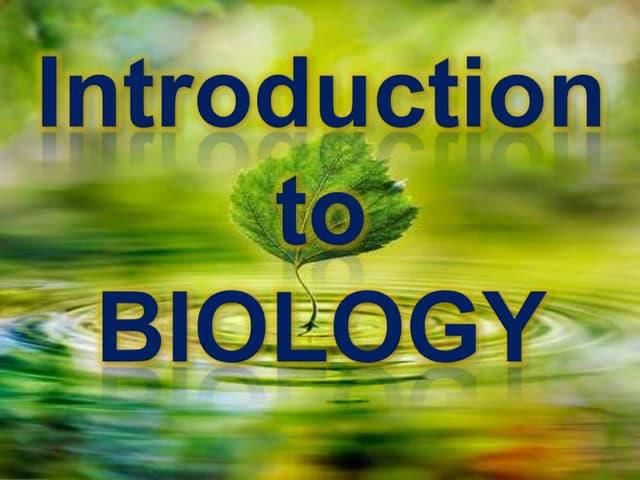Revision Notes: Introducing Biology | Biology Class 10 ICSE PDF Download
Introduction to Biology

Science refers to a systematic collection of knowledge about the universe, gained through careful observation and experimentation of natural events and phenomena. It encompasses various fields, each focusing on different aspects of the material universe.
Physics is the branch of science that studies the Earth, other planets, stars and their movements, our galaxy, as well as fundamental concepts like light and sound.
Chemistry deals with the properties and interactions of substances, including metals, non-metals, and various materials we encounter in our daily lives, characterized by their melting points, odors, and tastes.
Biology is the science dedicated to the study of living organisms, including plants, animals, and humans. Within biology, there are several specialized fields:
- Botany: The study of plants.
- Zoology: The study of animals.
- Human Biology: The study of humans as living organisms and their relationships with other organisms.
- Bacteriology: The study of bacteria.
- Virology: The study of viruses.
- Mycology: The study of fungi.
- Entomology: The study of insects.
- Ichthyology: The study of fish.
- Herpetology: The study of reptiles.
- Ornithology: The study of birds.
- Anatomy: The study of the internal structure of organisms, often through dissection.
- Morphology: The study and interpretation of the form and structure of plants and animals.
- Histology: The study of the microscopic structures of tissues and organs.
- Cytology: The study of the structure and function of cells.
- Physiology: The study of the functions and activities of organisms and their parts.
- Embryology: The study of the development of embryos in plants and animals.
- Taxonomy (or Systematics): The science of classifying and naming plants and animals.
- Ecology: The study of the interactions between organisms and their environment.
- Biogeography: The study of the distribution of plants and animals across the Earth.
- Palaeontology: The study of the history and evolution of organisms through fossils.
- Evolution: The study of the development of life forms over time using fossil evidence.
- Genetics: The study of how traits are passed from parents to offspring.
- Parasitology: The study of parasites that live on or inside other organisms.
- Pathology: The study of diseases in plants and animals.
- Immunology: The study of the immune system and how organisms defend against disease.
- Eugenics: The study of improving the human population through controlled breeding.
- Biochemistry: The study of chemical processes in living organisms.
- Agriculture: The practice of cultivating crops and raising livestock.
- Veterinary Science: The care and treatment of animals.
- Marine Biology: The study of organisms in the ocean.
- Household Biology: The study of household pests and how to manage them.
- Horticulture: The art and science of growing fruits, vegetables, flowers, and ornamental plants.
- Sericulture: The production of silk from silkworms.
- Pisciculture: The practice of raising fish.
- Molecular Biology: The study of biological processes at the molecular level.
- Biotechnology: The use of biological processes in technology, including genetic engineering, tissue culture, and biogas production.
- Cloning: The process of creating a genetically identical organism from a single cell.
- Bioengineering: The development of artificial body parts and the improvement of crops.
- Nuclear Biology: The study of the effects of radiation on living organisms.
- Space Biology: The study of how living organisms can survive in outer space.
- Exobiology: The study of the possibility of life elsewhere in the universe.
- Genomics: The study of an organism's entire DNA sequence.
- Bioinformatics: The management and analysis of biological data.
- Biometrics: The identification of individuals based on unique physical characteristics.
Applications of Biology
- Appreciation of Nature: Understanding the intricacies of living organisms and their environments fosters a deeper appreciation for the natural world.
- Maintaining Health: Knowledge of biology is crucial for promoting and maintaining health, both at individual and community levels.
- Conservation of Natural Resources: Biology helps in understanding ecosystems, leading to better conservation strategies for natural resources.
- Production of More Food: Advances in agricultural biology can lead to increased food production, ensuring food security.
- Creating Conscious Citizens: Education in biology fosters awareness about environmental and health issues, encouraging responsible citizenship.
- Development of Careers: Knowledge of biology opens up various career opportunities in healthcare, research, conservation, and education.
|
55 videos|189 docs|21 tests
|















